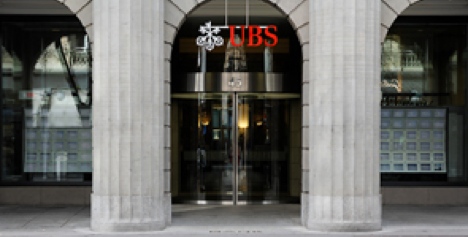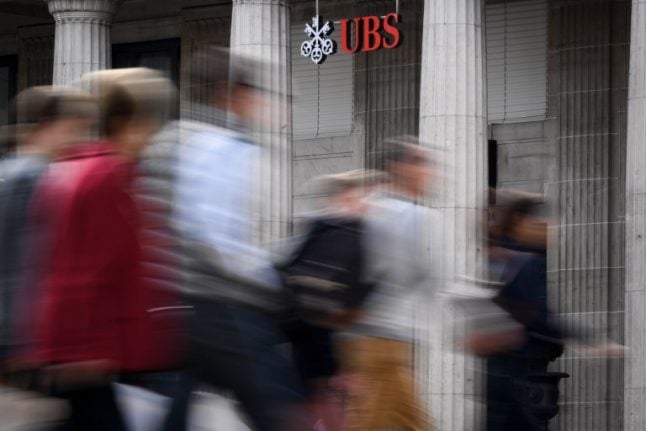Net profit totalled 762 million francs ($802 million).
The leap of almost one third compared to the outcome in the same period of 2013 was fuelled by 1.3 billion francs' worth of tax credits.
That helped offset litigation costs, which have hit UBS as countries such as the United States make international banks pay for past abetting of tax-dodging by their citizens.
Operating income at Switzerland's largest bank — the equivalent of turnover — rose by ten percent to more than 6.8 billion francs.
The performance fell short of expectations of analysts polled by financial news agency AWP, who on average had foreseen 862 million francs in profit and operating income of 6.9 billion francs.
UBS said that provisions for litigation reached 1.8 billion francs during the third quarter, with 1.6 billion francs of that pinned on the investment banking division.
That division posted an operating loss of 1.2 billion francs.
In the face of a tougher new regulatory environment and the financial crisis, UBS launched a root and branch change in it operations three years ago.
"I am very pleased with our underlying performance for the quarter, which again demonstrates the strength of our franchise," said Sergio Ermotti, the bank's CEO.
"At the same time, we are actively addressing litigation and regulatory matters."
"Three years since introducing our strategy, the business is far stronger, its earnings power is much greater and our absolute and relative capital position speaks for itself," he said
"That gives us every confidence in our ability to deliver on our capital returns policy."
UBS has refocused its operations on wealth management, a division which turned a pre-tax operating profit of 707 million francs in the third quarter, its highest level since the second quarter of 2009.
Net new money in UBS' wealth management businesses was 9.8 billion francs, with the Asia-Pacific region the main driver, though the figure was slightly down from the 10.7 billion francs which flowed in in the second quarter.
The Americas wealth management arm, meanwhile, posted pre-tax operating profit of 236 million francs, thanks to an influx of $4.9 billion in new money.



 Please whitelist us to continue reading.
Please whitelist us to continue reading.
Member comments